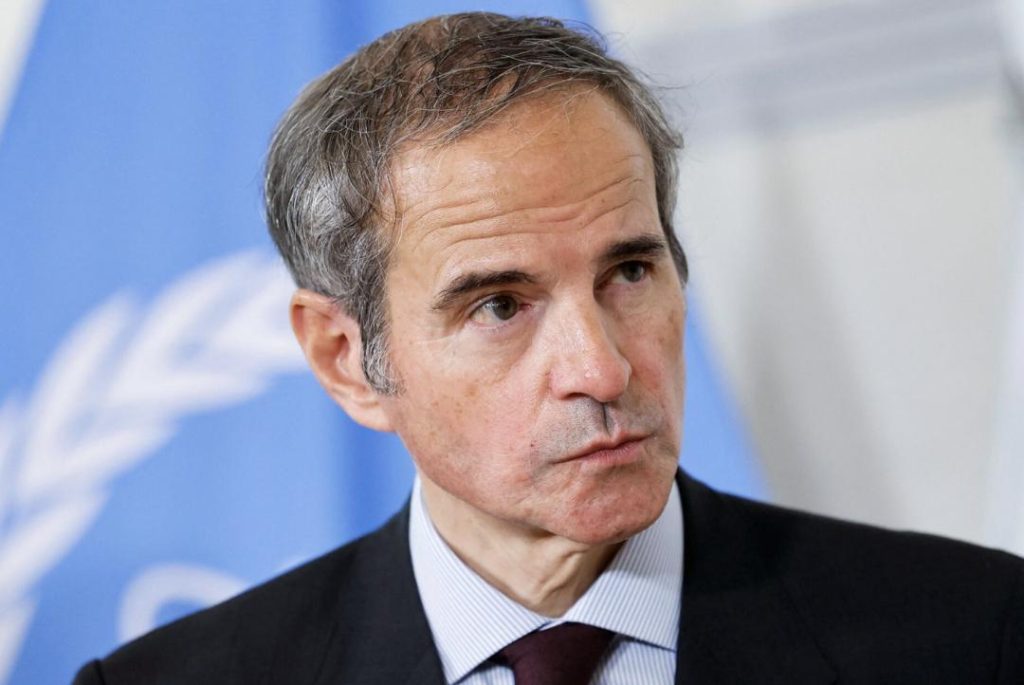
Iran Bans IAEA Chief, Shuts Down Nuclear Site Surveillance: Report
In a significant escalation of tensions, Iran has reportedly banned International Atomic Energy Agency (IAEA) chief Rafael Grossi from entering the country, and refused to install cameras at its nuclear sites. This move comes amidst growing concerns over Iran’s nuclear program, and follows the discovery of sensitive nuclear facility data in documents obtained from Israel.
According to reports, Grossi had been pushing for the installation of cameras at Iran’s nuclear sites as part of a deal to restore international monitoring of the country’s nuclear program. However, Iran has rejected this proposal, citing concerns over the agency’s “malign intent”.
Iran’s decision to ban Grossi and shut down nuclear site surveillance has sparked widespread concern among international leaders and nuclear experts. The move is seen as a significant escalation of tensions between Iran and the international community, and raises questions about the country’s commitment to transparency and cooperation on its nuclear program.
The IAEA has been at the forefront of international efforts to monitor and verify Iran’s nuclear activities, and has played a crucial role in implementing the 2015 Joint Comprehensive Plan of Action (JCPOA) agreement. However, in recent months, Iran has been increasingly resistant to IAEA inspections and monitoring, citing concerns over the agency’s “politicization” of its work.
The latest developments come amid a backdrop of heightened tensions between Iran and the United States, which has withdrawn from the JCPOA and reimposed economic sanctions on the country. The US has also slapped sanctions on Iranian officials and entities involved in the country’s nuclear program, citing concerns over Iran’s “nuclear ambitions”.
In response to the IAEA’s push for increased monitoring, Iran’s Foreign Minister Seyed Abbas Araghchi has accused the agency of “malign intent” and “trying to undermine Iran’s sovereignty”. Araghchi has also accused the IAEA of being “influenced” by the US and other Western countries.
“Grossi’s insistence on visiting bombed [nuclear] sites under pretext of safeguards is meaningless and…malign in intent,” Araghchi said in a statement. “The IAEA’s behavior is in line with the US and European countries’ policy of strangling Iran’s economy and creating a crisis in the country.”
The discovery of sensitive nuclear facility data in documents obtained from Israel has also raised concerns over the potential risks and consequences of Iran’s nuclear program. The documents, which were reportedly obtained by Israeli intelligence services, reveal details of Iran’s nuclear program, including information on its uranium enrichment capabilities and plans for nuclear research reactors.
The US and other Western countries have long been concerned about Iran’s nuclear program, citing fears over the potential risks and consequences of a nuclear-armed Iran. The US has repeatedly accused Iran of pursuing a nuclear bomb, and has slapped sanctions on Iranian officials and entities involved in the country’s nuclear program.
Iran, however, has consistently denied any plans to develop nuclear weapons, and has insisted that its nuclear program is solely for peaceful purposes. The country has also accused the US and other Western countries of “hypocrisy” and “double standards”, citing their own nuclear arsenals and failure to ratify the Comprehensive Nuclear-Test-Ban Treaty.
As the situation continues to unfold, international leaders and nuclear experts are urging Iran to reconsider its decision to ban Grossi and shut down nuclear site surveillance. The IAEA has also called on Iran to cooperate with the agency and provide access to its nuclear sites, citing concerns over the potential risks and consequences of a non-transparent nuclear program.
In conclusion, the latest developments in Iran’s nuclear program are a cause for concern, and raise questions about the country’s commitment to transparency and cooperation with the international community. The IAEA’s push for increased monitoring and verification is crucial in ensuring that Iran’s nuclear program is peaceful and does not pose a threat to regional or global security.



